Social-Emotional Learning (SEL) at Beat the Streets
“Social-emotional learning is a broad term referring to how students regulate their emotions, communicate with others, use compassion and empathy to understand the needs of other people, build relationships and make good decisions”
Over the last year, you may have seen the term ‘social-emotional learning’ or SEL, pop up quite a bit. To better acquaint you with SEL, what follows is a brief introduction. This introduction will provide you with a starting point, and hopefully, a desire to learn more about a framework that is at the forefront of what BTS aims to achieve in its work with children and youth.
Why Social-Emotional Learning?
There is a wealth of resources available when it comes to social-emotional learning. A great place to start is with CASEL: The Collaborative for Academic, Social, and Emotional Learning (https://casel.org/). CASEL defined SEL over twenty years ago and champions the importance of social-emotional learning in schools.
According to CASEL, social-emotional learning is
“the process through which all young people and adults acquire and apply the knowledge, skills, and attitudes to develop healthy identities, manage emotions and achieve personal and collective goals, feel and show empathy for others, establish and maintain positive relationships, and make responsible and caring decisions”
We are not born knowing how to manage emotions, solve problems or get along with others, just like we are not born knowing math or science. And so, much like with any formal academic subject, success in managing our emotions, problem-solving, and decision making require practice, time, and guidance.
To further support the implementation of social-emotional learning, CASEL came up with the CASEL 5. The CASEL 5 addresses five core competencies thought to be critical for a child’s wellbeing and educational attainment. They include:
1. Self Awareness
This is the ability to identify and describe our emotions, our thoughts, our values, our strengths, and our challenges
When this core competence is higher students score higher on life satisfaction measures, stay in school longer, and have higher levels of social and professional success. Students who do not possess this core competence are more likely to experience increased mental health problems and lower academic achievement (https://peopleforeducation.ca/report/sel-domain-paper/)
2. Self Management
This is the ability to navigate our thoughts, emotions, and behaviours to make decisions and reach goals that benefit oneself and others
Numerous studies have established that the better a student masters this competence the higher their levels of self-esteem and self-efficacy. Students who do not develop this core competence are at a significantly greater risk of emotional problems, internalizing and externalizing disorders, attentional problems, and poor academic outcomes (https://peopleforeducation.ca/report/sel-domain-paper/)
3. Social Awareness
This is the ability to understand, empathize, and feel compassion for those with different backgrounds or cultures
Well-developed social awareness is associated with positive social adjustment, reduced bullying, better prosocial tendencies, and enhanced emotion regulation. Low levels of this core competence are associated with higher levels of aggression in adolescents (https://peopleforeducation.ca/report/sel-domain-paper/)
5. Relationship Skills
This is the ability to establish and maintain healthy and rewarding relationships with diverse individuals and groups
Children who score high on this competence tend to be more prosocial and cooperative with higher levels of self-esteem, happiness, and an increased liking for school. Children who score low on this competence have been shown to have: poor interpersonal skills, generally low levels of self-esteem, and lower levels of happiness (https://peopleforeducation.ca/report/sel-domain-paper/)
5. Responsible Decision Making
This is the ability to identify problems when making decisions and to generate alternatives
Students who develop this competence have been shown to have clear and motivating goals. Students who score low on this competence have less capacity to manage stressful events and to develop effective strategies for addressing interpersonal and academic challenges (https://peopleforeducation.ca/report/sel-domain-paper/)
Educators, coaches, and guardians: let’s take the time and incorporate social-emotional learning into our programs, our workouts, and our daily lives. When we do so, we facilitate opportunities where children and youth learn to manage themselves, make sound decisions based on their values and goals, decrease their emotional distress, and so much more. When we incorporate social-emotional learning into our programs and activities, we provide children and youth with the tools they need to succeed.
